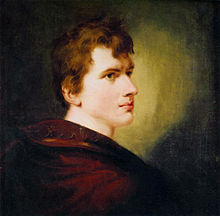
Christian Matthias Theodor Mommsen was a German classical scholar, historian, jurist, journalist, politician and archaeologist. He is widely regarded as one of the greatest classicists of the 19th century. He received the 1902 Nobel Prize in Literature for his historical writings, including The History of Rome, after having been nominated by 18 members of the Prussian Academy of Sciences. He was also a prominent German politician, as a member of the Prussian and German parliaments. His works on Roman law and on the law of obligations had a significant impact on the German civil code.
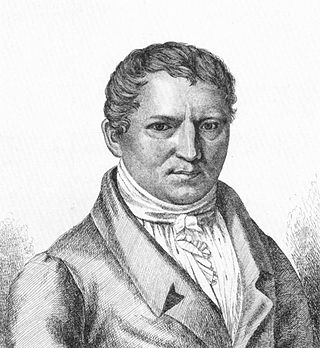
Karl Friedrich Eichhorn was a German jurist.

Frederick William IV, the eldest son and successor of Frederick William III of Prussia, was king of Prussia from 7 June 1840 until his death on 2 January 1861. Also referred to as the "romanticist on the throne", he was deeply religious and believed that he ruled by divine right. He feared revolutions, and his ideal state was one governed by the Christian estates of the realm rather than a constitutional monarchy.
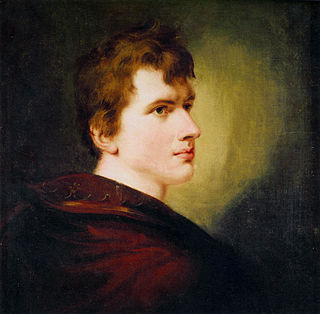
Carl Joachim Friedrich Ludwig von Arnim, better known as Achim von Arnim, was a German poet, novelist, and together with Clemens Brentano and Joseph von Eichendorff, a leading figure of German Romanticism.

The Academy of Arts is a state arts institution in Berlin, Germany. The task of the Academy is to promote art, as well as to advise and support the states of Germany.

Bettina von Arnim, born Elisabeth Catharina Ludovica Magdalena Brentano, was a German writer and novelist.

Adam Heinrich Müller was a German-Austrian conservative philosopher, literary critic, and political economist, working within the romantic tradition.

The Prussian Union of Churches was a major Protestant church body which emerged in 1817 from a series of decrees by Frederick William III of Prussia that united both Lutheran and Reformed denominations in Prussia. Although not the first of its kind, the Prussian Union was the first to occur in a major German state.

Michael Gabriel Fredersdorf was the longest-standing valet and companion of Frederick II of Prussia.
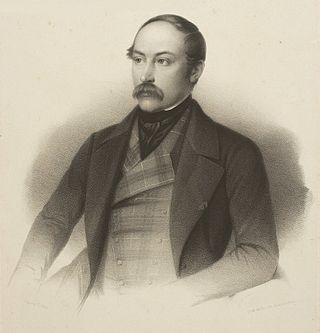
Adolf Heinrich Graf von Arnim-Boitzenburg was a German statesman. He served as the first Minister-President of Prussia for ten days during the Revolution of 1848.

Caroline Bardua was a German painter. She was one of the first middle-class women who was able to create an existence for herself as an independent artist.
Saul Ascher was a German writer, translator and bookseller.

The memorial to gay and lesbian victims of National Socialism is a monument in Cologne, Germany, dedicated to the gay and lesbian victims of the Nazis.
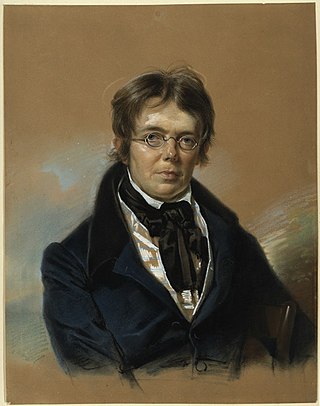
Christian Peter Wilhelm Friedrich Beuth was a Prussian statesman, involved in the Prussian reforms and the main mover in Prussia's industrial renewal.

Peter Edward Stroehling, also spelled Peter Eduard Ströhling, and sometimes Stroely or Straely was a portrait artist from either Germany or the Russian Empire who spent his later years based in London. He worked in oils and in miniature and painted a number of royal portraits.

The Internationaler Sekttag, Weltsekttag or Sekttag is celebrated on 9 April, occasionally also upon other days, mainly amongst German-speaking students and members of German Student Corps and Studentenverbindungen in general.

Helmut Müller-Enbergs is a German political scientist who has written extensively on the Stasi and related aspects of the German Democratic Republic's history.

Isaac von Sinclair was a German writer and diplomat. He was a friend of the poet Friedrich Hölderlin.
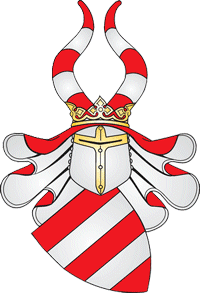
The House of Arnim is the name of an ancient German noble family, originally from Altmark, part of the mediaeval March of Brandenburg. Members of the family occupied many important positions within Holy Roman Empire, Saxony, Prussia, German Empire and the German Reich.
Ursula Püschel was a German literary critic, journalist and writer. One focus of her activities was the work of the writer Bettina von Arnim, a representative of the Vormärz-Literatur.
